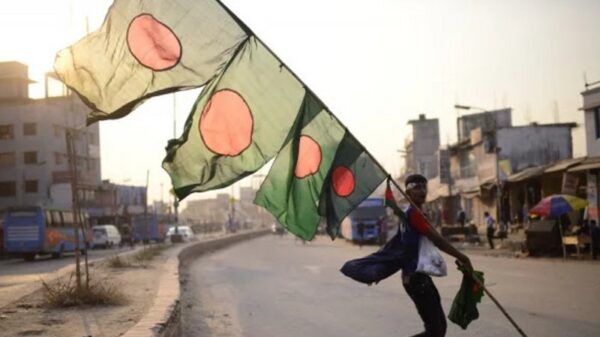The European Political Community has held its second-ever meeting, this time in Moldova. Launched last year at the suggestion of France’s President Macron, it’s open to all European nations; although Russia and Belarus are not currently invited and Türkiye chose not to attend. So what’s the EPC for -and what might it achieve, asks Political Editor Nick Powell.
In a very real sense, the European Political Community is defined by what it is not. Countries do not have to be members of the European Union to take part, whether they’re outside by choice or are trying to join. It is not a body that can bind its members to a particular course of action, it is a twice-yearly opportunity to meet and discuss and perhaps agree. A talking shop in other words.
It doesn’t have a high authority, as the European Coal and Steel Community did, to implement its decisions. It certainly doesn’t have a commission to run it, like the European Economic Community. Indeed, the British government would have preferred to call it the European Political Forum so as to avoid any hint of the forerunners of the EU.
The UK gave way on that point and the then Prime Minister Liz Truss settled for getting her team to make sure that no European flags would be seen in her vicinity at the first meeting in Prague. There are some signs that her successor, Rishi Sunak, has a slightly more serious approach to the EPC, which Britain will host in 2024. (There’ll be a meeting in Spain later this year, confirming a pattern of moving between EU and non-EU countries).
For Moldova, the meeting at Castel Mimi outside Chisinau, was a chance to be at the heart of European, if not EU, attention. It not only borders Ukraine but has Russian soldiers actually on its territory, in the guise of peacekeepers in the breakaway territory of Transnistria. On that issue the EU’s High Representative, Josep Borell, offered a reassurance on his way into the meeting.
He said Moldova’s path to EU membership “is independent of what is happening in Transnistria”. He cited the precedent of when Cyprus joined without having reunited with the breakaway north of the island. In the meanwhile, the EU has been underlining that Moldova is not yet a member state by imposing sanctions on some of the country’s pro-Russian politicians and businessmen.
But Ukraine was the first matter on the High Representative’s mind. “I hope the presence of so many leaders here, very close to Ukraine at some kilometres from the border, will send a strong message about the unity of many states -not only the European Union but others- in defending the international order, in defending the right of the people to defend the sovereignty of their countries”, Mr Borrell said.
It is indeed hard not to put Ukraine at the top of the agenda, especially when President Zelenskyy is there in person. But it’s the Russian invasion that’s made it easier for many heads of government to see the need for pan-European cooperation that brings together countries both inside and outside the European Union.
In the case of British Prime Minister Sunak, he was confident that the UK had demonstrated its right to a place at the top table when support for Ukraine is discussed. But he couldn’t resist telling his domestic audience that migration and border security must be “top of the agenda” in Chisinau. It was reminiscent of those pre-Brexit referendum European summits when Downing Street would always brief that David Cameron had made some grievance or other the focus of discussion.
Usually, he had been permitted a brief whinge over dinner before the meeting resumed with its actual agenda. The beauty of the European Political Community is that it allows time for bilateral discussions of issues that are bugging particular leaders. Sunak got to discuss a migrant returns deal with his Moldovan hosts, rather overlooking that you could count on the fingers of one hand the number of Moldovan migrants crossing to Britain in small boats during the past year.
If it allows a certain amount of political preening, that doesn’t make the European Political Community a bad idea. Migration will be a hot topic, whoever wins the election in Spain, when the EPC meets next at the Alhambra in Granada. And it will be again, when the leaders of wider Europe travel to Britain, probably not long before Prime Minister Sunak faces the voters.
Migration is an excellent example of why a mechanism for getting EU and non-EU states together on a regular basis is a good idea. It also demonstrates why it’s a shame that Türkiye’s newly-reelected President Erdogan decided to give Moldova a miss.












































